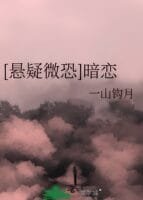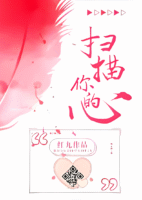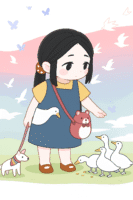I Have A Store C15
by MarineTLChapter 15: Fabric Shortage
Zhou Yimin returned to the courtyard and brought along a bottle of Moutai and a bottle of Fenjiu that his father had treasured for years for his grandfather.
Fenjiu from the 1960s continued the packaging style of the late 1950s. The label background was pink and depicted a map of China, with the word “Fenjiu” prominently printed over a globe design.
Like Moutai, Fenjiu was also one of the eight famous liquors at the time.
Next, Zhou Yimin bought a bolt of fabric from a shop for 30 yuan. The quality was quite good, and the price at fabric stores was about the same as in his shop.
The only advantage? No fabric ration coupons were needed.
Fabric and fabric coupons were incredibly scarce at the time. Many families couldn’t buy fabric even if they had money.
In fact, since the founding of the country, cotton fabric had been in extremely short supply.
With a weak industrial and agricultural base, people wore only cotton clothes. However, the limited land resources prioritized food production (grain crops) over clothing (cotton farming), making textiles extremely scarce.
Six years ago, in 1954, the country implemented a cotton fabric rationing system, distributing fabric coupons per person in phases. Fabric, ready-made clothing, and bedding all required coupons to purchase.
In 1956, a flood led to reduced cotton yields, making textile supplies even tighter, and the “coupon-based fabric purchase” policy had to be reinforced.
Three years ago, the government called on the nation to “overcome difficulties and carefully budget cotton fabric use.”
Even Beijing announced reductions in its fabric supply plan: the annual per-person fabric coupon quota for urban residents and university students dropped from 36 shichi (市尺) to 24 shichi.
What did 24 shichi mean?
A single shirt required 7.5 shichi of fabric, and a set of cotton-padded clothes needed 16 shichi.
With limited fabric coupons and tight finances, people had to be extremely frugal with their clothing.
Moreover, pure cotton garments wore out easily, so wearing patched-up clothes and protective sleeve covers became a defining feature of the era.
A bolt of fabric was about 34 meters long—enough to make several pieces of clothing.
At the time, people usually bought fabric by the shichi. Buying an entire bolt was rare—not only did they lack that many coupons, but even if they had them, purchasing such a large amount was difficult.
On average, one meter of fabric cost around 1 yuan.
Zhou Yimin also bought five bags of milk powder, two jin of brown sugar, and 20 jin of rice.
Milk powder was nutritious, but he wasn’t sure if his grandparents would drink it.
After preparing everything, Zhou Yimin hopped on his bicycle and hurried to catch up with Zhou Dafu and the others.
Before long, he caught up with them resting by the roadside, looking weak from hunger—they hadn’t eaten anything since leaving the village.
Realizing this, Zhou Yimin pretended to take something from the shopping basket on his bicycle.
Inside were large meat buns he had intentionally bought extra of during breakfast over the past two days. They had been stored in his shop’s backpack and were still warm!
“Come here, everyone. Take two each.”
Seeing the large meat buns, Zhou Dafu and the others swallowed their saliva, quickly wiped their hands on their clothes, and carefully took one, savoring it in small bites.
Just moments ago, someone had been wondering why Uncle Sixteen hadn’t treated them to noodles or rice this time.
Who would have thought? Uncle Sixteen hadn’t forgotten—he had bought them large meat buns, and they were still warm.
“Uncle Sixteen, one is enough for us,” Zhou Dafu said.
“Just take them! Why so much nonsense?”
“Thank you, Uncle Sixteen!”
No one ate the second bun. They planned to take it home for their families to taste—it had been so long since they had last had meat buns, they had nearly forgotten what they tasted like.
Then, Zhou Yimin handed out cigarettes to them.
They felt as happy as immortals!
Back in Zhoujia Village, Zhou Dafu and the others hauled their potatoes straight to the communal kitchen to find the old village chief, informing Zhou Yimin that the few iron lumps would be delivered later.
When the old lady saw her grandson return, she quickly hid the wild vegetables in her hands, afraid he would see them.
Zhou Yimin played along and pretended not to notice.
“Grandma! It’s so hot—don’t stay outside in the sun!”
The old lady laughed. “I wasn’t in the sun, just out for a walk after eating. Your grandpa and I had white flour mantou today and got too full.”
Zhou Yimin didn’t expose her lie.
Then, the old lady called inside, “Old man, what are you lying around for? Get out here and help Yimin carry things! All you do is eat, sleep, and go to the latrine.”
“Grandma, I can do it myself. It’s not heavy.”
Saying that, Zhou Yimin lifted the entire shopping basket and carried it inside.
The old lady caught sight of the bolt of fabric in the basket and was shocked.
So much?
Old Master Zhou ran out, barely having time to put on his shoes, his face beaming with joy.
As long as his eldest grandson was back, he was happy.
“Yimin, are things settled in the city? Here, let Grandpa give you a hand. Whoa! Such a big bolt of fabric? ” He was equally surprised.
People in rural areas knew better than anyone how precious fabric was.
Some children didn’t even have ragged clothes to wear and ran around naked.
In more remote areas, a family might have only two or three sets of clothes. Those who worked outside could wear them, while those staying home had to go without and just lie in bed.
“I’ve handled things for now. I should be staying for two or three days this time. This fabric came from an internal textile factory sale—I bought it with cash, no fabric coupons needed. It was a good deal.”
Hearing that their grandson would be staying for a few days, the elderly couple was overjoyed.
“A good deal, indeed!” They quickly nodded in agreement.
Such high-quality fabric was worth the money—without connections, even having money wouldn’t guarantee access to it.
Zhou Yimin handed the fabric to his grandmother for safekeeping.
“Have Third Aunt make some light summer outfits for you and Grandpa. Get Laifu a set, too. We’ll see how much is left afterward. When it gets cold, I’ll ask my friend again.”
The old man said, “You should get yourself two sets first.”
The old lady nodded. “That’s right!”
Zhou Yimin waved them off. “Grandpa, Grandma! I have something even better. I ordered Zhongshan suits from a tailor shop.”
Because government officials favored Zhongshan suits, they were also called “leadership suits.” They were very popular among young men but not everyone could afford them.
Zhou Yimin deliberately mentioned this so his grandparents wouldn’t insist that Third Aunt make clothes for him first.
Of course, he wasn’t lying—he really did plan to get two Zhongshan suits.
“Zhongshan suits are great! Very good choice!”
This time, the old couple didn’t argue further.
The old lady quickly stored the fabric away, planning to call Xuqiang’s wife over later.
“Grandpa, these two bottles of fine liquor are for you. But don’t drink too much—it’s not good for your health.”
The old man was delighted to see Moutai and Fenjiu. His eldest grandson was truly filial, unlike that certain ungrateful rascal who never thought to bring them anything good.
“Alright, I’ll just have a little for the taste!” he promised immediately.
Then, Zhou Yimin took out the milk powder and brown sugar, handing them to his grandmother.
“Grandma, you and Grandpa should drink some when you have time. Give a couple of bags to Third Aunt’s family—Laifu and the others need nutrition, they’re getting too skinny.”
Fabric, liquor, milk powder, brown sugar—these were all rare treasures in the countryside.
Did he bring back half the city’s goods with him?
“Your grandpa and I don’t like drinking this. Take it back to the city, Yimin.”
Zhou Yimin pushed it back toward them. “I have more over there. My friend has connections—just drink it without worry!
“I also hired someone to renovate the house in the city. Once it’s done, I’ll bring your granddaughter-in-law back and give you a few great-grandchildren to dote on.”
(End of Chapter)
—
#Notes:
—Shichi (市尺) is a traditional Chinese foot, now standardized as 1/3 meter (≈33.33 cm or 13.12 in).
—A bolt of fabric is a large roll, typically 27–91 meters long, depending on the material.










0 Comments